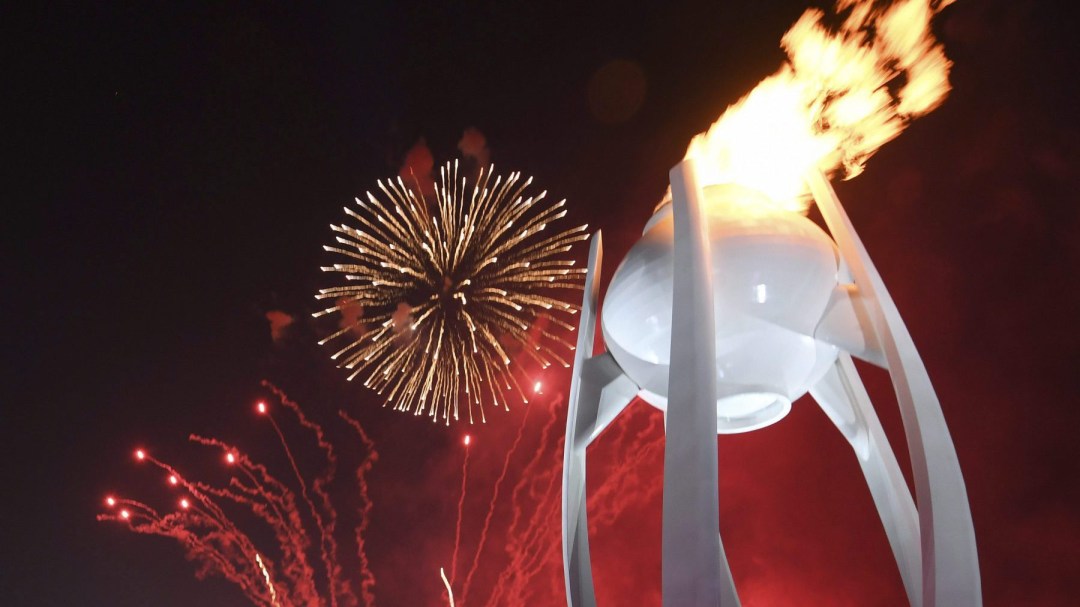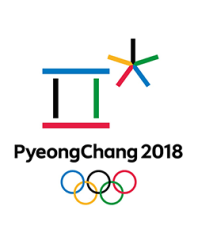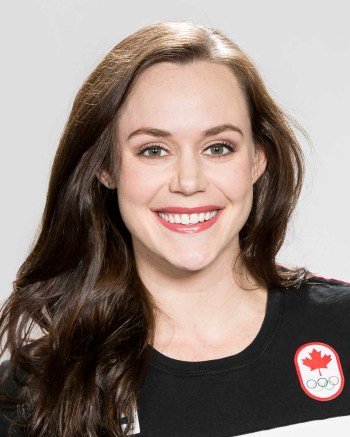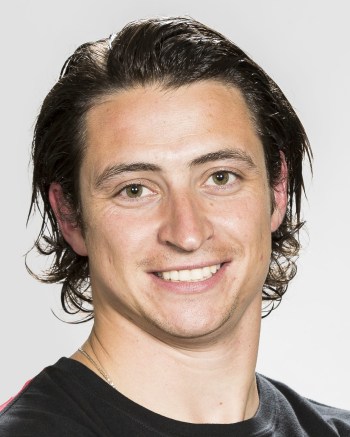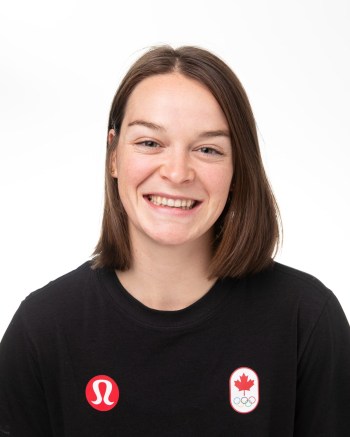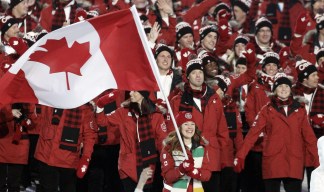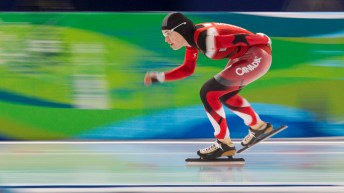PyeongChang 2018
Team Canada Medal Count
Games Summary
XXIII Olympic Winter Games
Team Canada made history more than once at the 2018 Olympic Winter Games in PyeongChang. Not only were the 225 athletes the most Canada has ever sent to a Winter Games, but the 29 medals they brought home were also a national winter record. It was also Canada’s second-most successful Olympic Games ever behind only the boycotted summer Games of Los Angeles 1984.
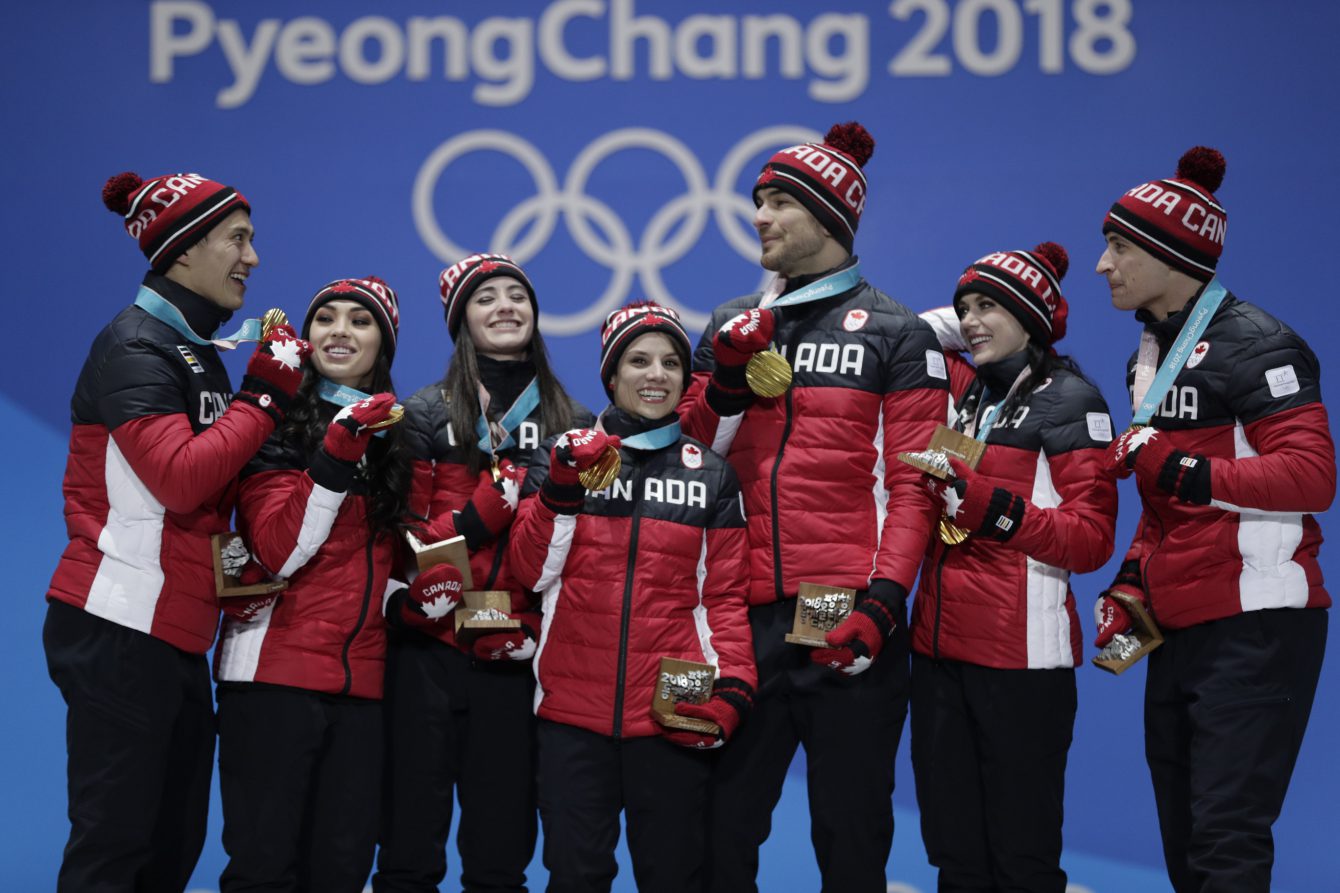
Team Canada figure skaters Patrick Chan, Gabrielle Daleman, Kaetlyn Osmond, Meagan Duhamel, Eric Radford, Tessa Virtue and Scott Moir with their gold medals from the team event at PyeongChang 2018 Photo: COC/Jason Ransom
Opening Ceremony flagbearers Tessa Virtue and Scott Moir became the most decorated figure skaters in Olympic history. They were double gold medallists in the ice dance and team events, bringing their career medal total to five. Kaetlyn Osmond along with Meagan Duhamel and Eric Radford were also double medallists in figure skating, adding bronzes in the women’s singles and pairs events to their team gold.
PyeongChang 2018 Team Canada Roster
The honour of being the Closing Ceremony flagbearer went to short track speed skater Kim Boutin after she became a triple medallist, winning silver in the 1000m to go with bronze medals in the 500m and 1500m. She was just the second woman to ever win medals in all three individual short track events at the same Games. She was also just the fourth Canadian athlete to win at least three medals at one Olympic Winter Games.
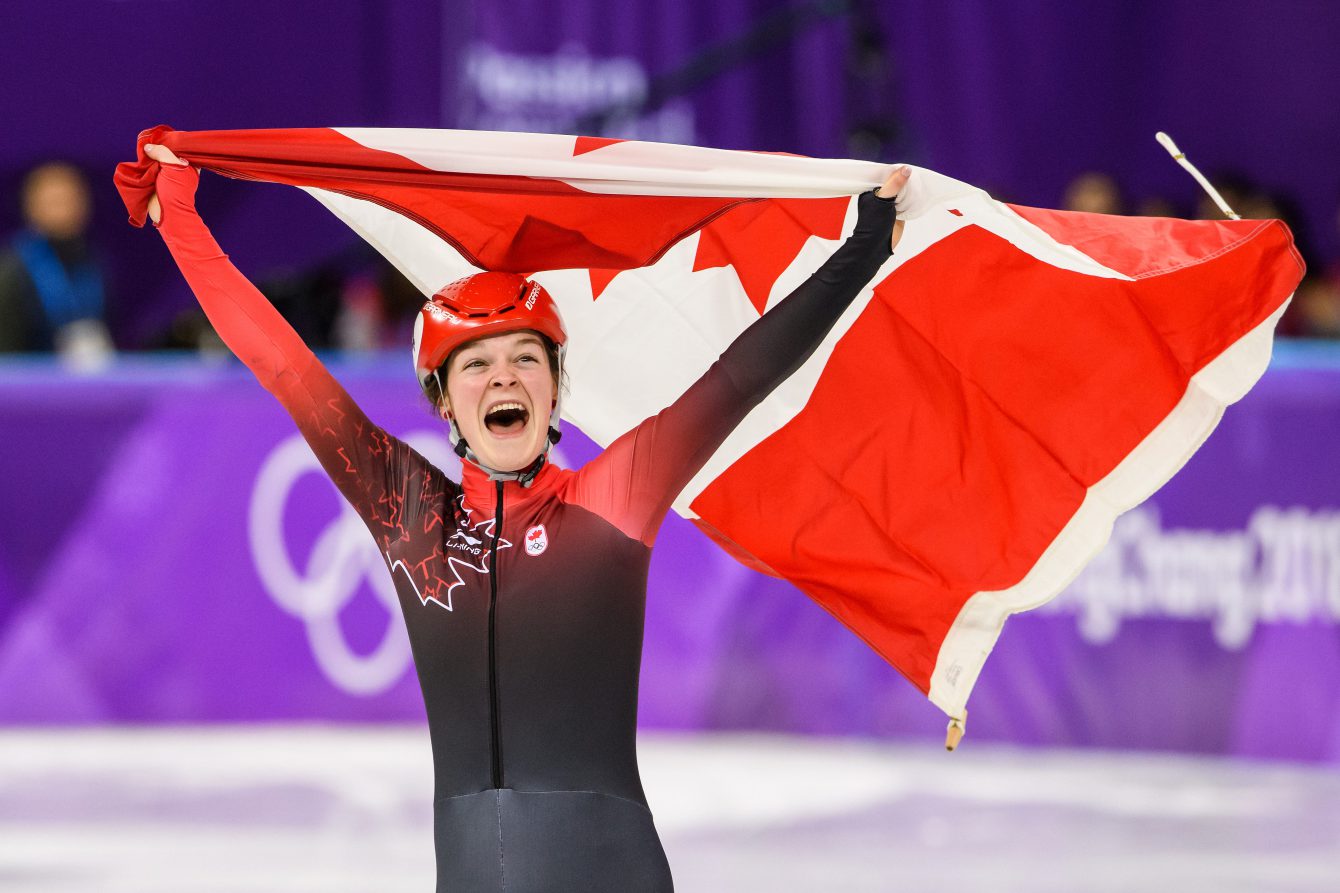
Kim Boutin wins bronze during short track speed skating’s women’s 1500m at the PyeongChang 2018 Olympic Winter Games at Gangneung Ice Arena on February 17, 2018 in Gangneung, South Korea (Photo by Vincent Ethier/COC)
Samuel Girard went from being the heir apparent to Canada’s newest Olympic champion in short track with his gold medal in the 1000m. He also helped the 5000m relay team win bronze – a squad that included Charles Hamelin. His fifth career Olympic medal put him in the company of Canada’s most decorated male Olympians.
For the first time ever, there were Canadian lugers on the Olympic podium. The long drought was broken by Alex Gough capturing bronze in the women’s singles event. She was then joined by Sam Edney, Tristan Walker and Justin Snith to win silver in the team relay, erasing the disappointment of their fourth-place finish at Sochi 2014.
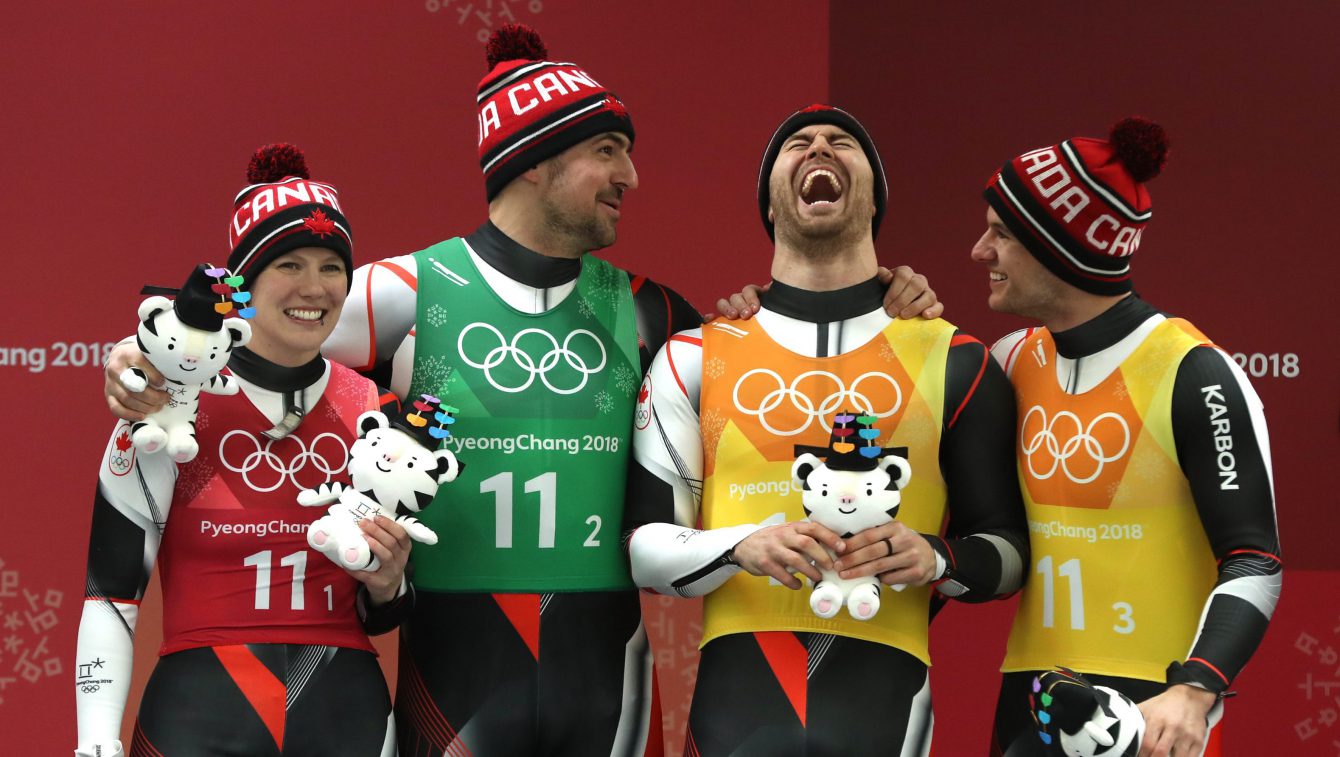
Team Canada luge relay team (l-r Alex Gough, Sam Edney, Tristan Walker, Justin Snith) wins Silver at the Alpensia Sliding Centre during the Olympic Winter Games, in Pyeongchang, South Korea, Thursday, February 15, 2018. Photo: COC/David Jackson
Long track speed skater Ted-Jan Bloemen was also a double medallist, winning 10,000m gold in Olympic record time after claiming silver in the men’s 5000m. They were Canada’s first Olympic medals in those events in 86 years.
Justin Kripps and Alex Kopacz shared the gold medal in men’s two-man bobsleigh with a German sled, 20 years after the only other tie for Olympic bobsleigh gold also involved a Canadian duo. Kaillie Humphries became the first Canadian bobsledder to win three Olympic medals, claiming bronze in the women’s two-man with hurdler-turned-brakeman, dual-season Olympian Phylicia George.
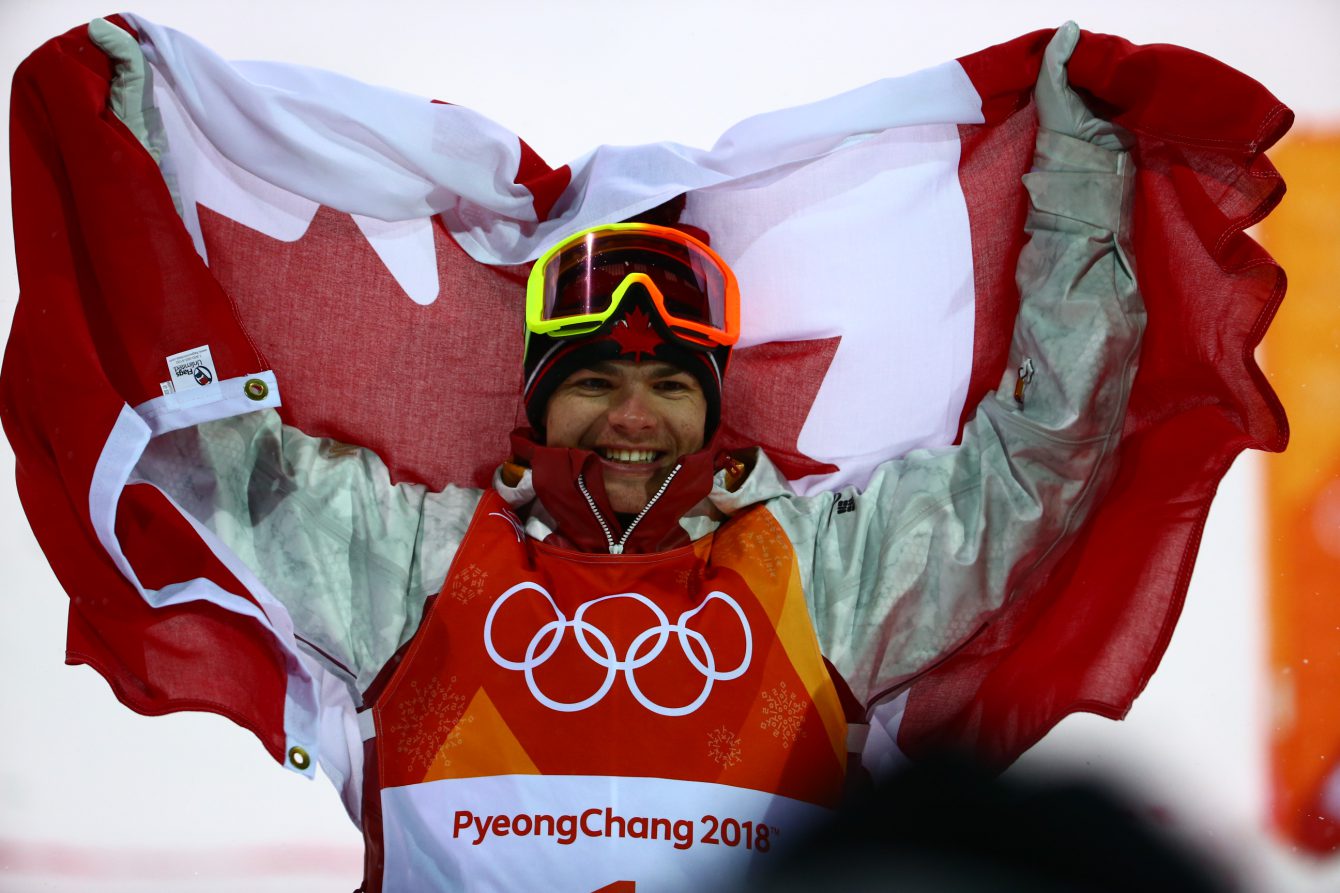
Mikael Kingsbury of Canada celebrates after winning gold in men’s moguls at PyeongChang 2018 on February 12, 2018. (Photo by Vaughn Ridley/COC)
Mikaël Kingsbury cemented his status as the GOAT (greatest of all time) in moguls skiing with his gold medal, adding to the silver he’d won at Sochi 2014 and his World Cup wins record. Cassie Sharpe dominated the women’s ski halfpipe event to also win gold. Justine Dufour-Lapointe won silver to stand on the women’s moguls podium for the second straight Games while Alex Beaulieu-Marchand took the bronze in men’s ski slopestyle.
For the second straight Games, Canada won gold and silver in women’s ski cross. This time it was Kelsey Serwa, who had been second in Sochi, taking the gold medal ahead of teammate Brittany Phelan. Brady Leman gave Canada its first Olympic medal in men’s ski cross, claiming the gold four years after he had finished a heartbreaking fourth.
Sébastien Toutant was the first ever Olympic champion in men’s snowboard big air while teammates Max Parrot and Mark McMorris shared the podium in the slopestyle event, taking silver and bronze. In women’s snowboard slopestyle, Laurie Blouin overcame difficult wind conditions and a hard crash in training to win the silver medal.
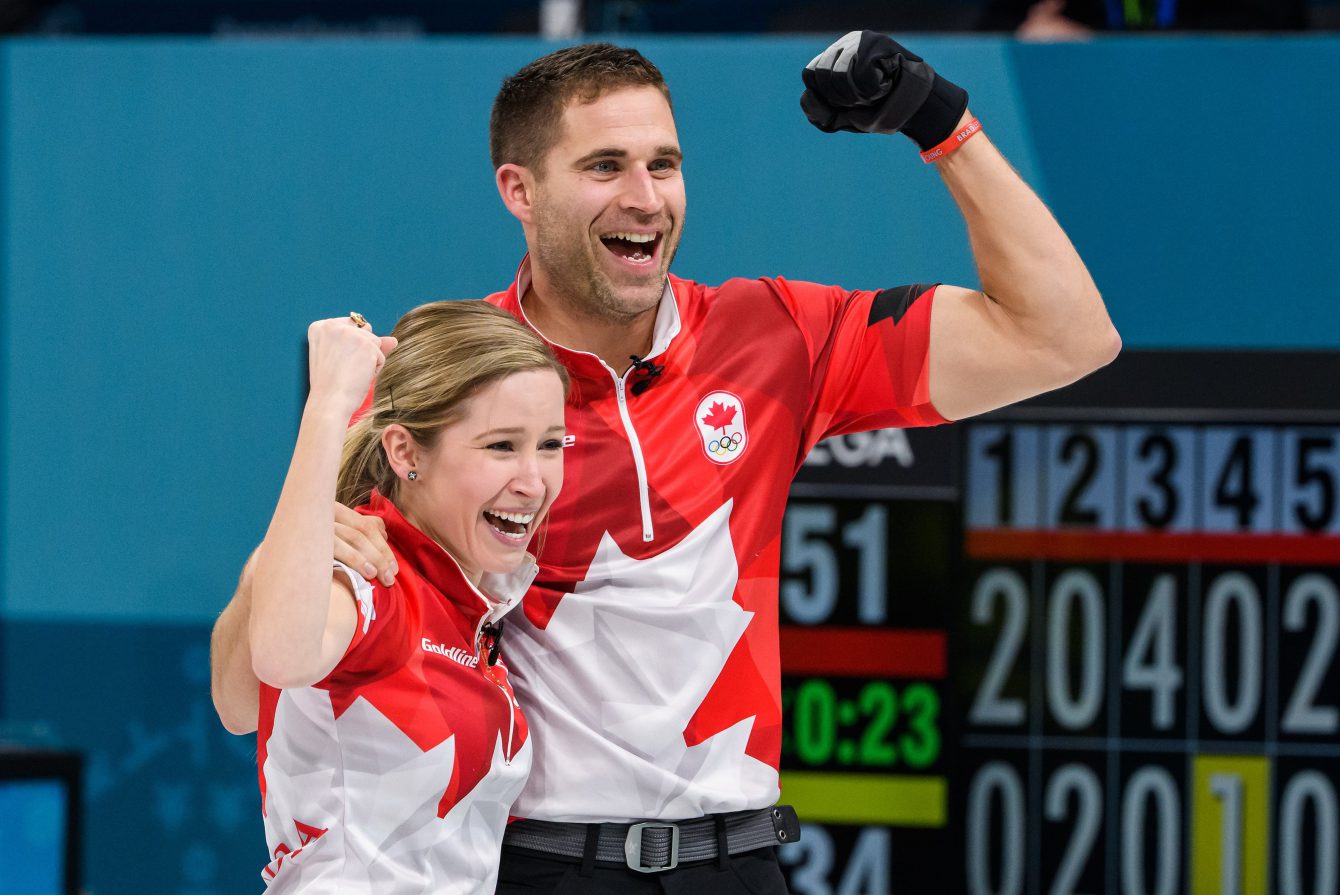
Kaitlyn Lawes and John Morris of Canada compete during the Curling Mixed Doubles Gold Medal Game against Switzerland at the PyeongChang 2018 Winter Olympic Games at Gangneung Curling Centre on February 13, 2018 in Gangneung, South Korea.(Photo by Vincent Ethier/COC)
Kaitlyn Lawes and John Morris swept their way to the first ever Olympic gold medal in mixed doubles curling. Both the women’s and men’s hockey teams made it to the podium. The women won silver, their gold medal streak ending at four following a shootout loss to the United States. The team of unheralded men defeated the Czech Republic to win the bronze.
Host City
In 2018, the Republic of Korea hosted the XXIII Olympic Winter Games. This was the second time that the country commonly known as South Korea welcomed the world’s greatest athletes, having previously hosted the Games of the XXIV Olympiad in Seoul in 1988. Only one other Asian country has ever hosted the Olympic Winter Games, with Japan given the honour in 1972 (Sapporo) and 1998 (Nagano).
The Games opened on February 9, continuing through to February 25.
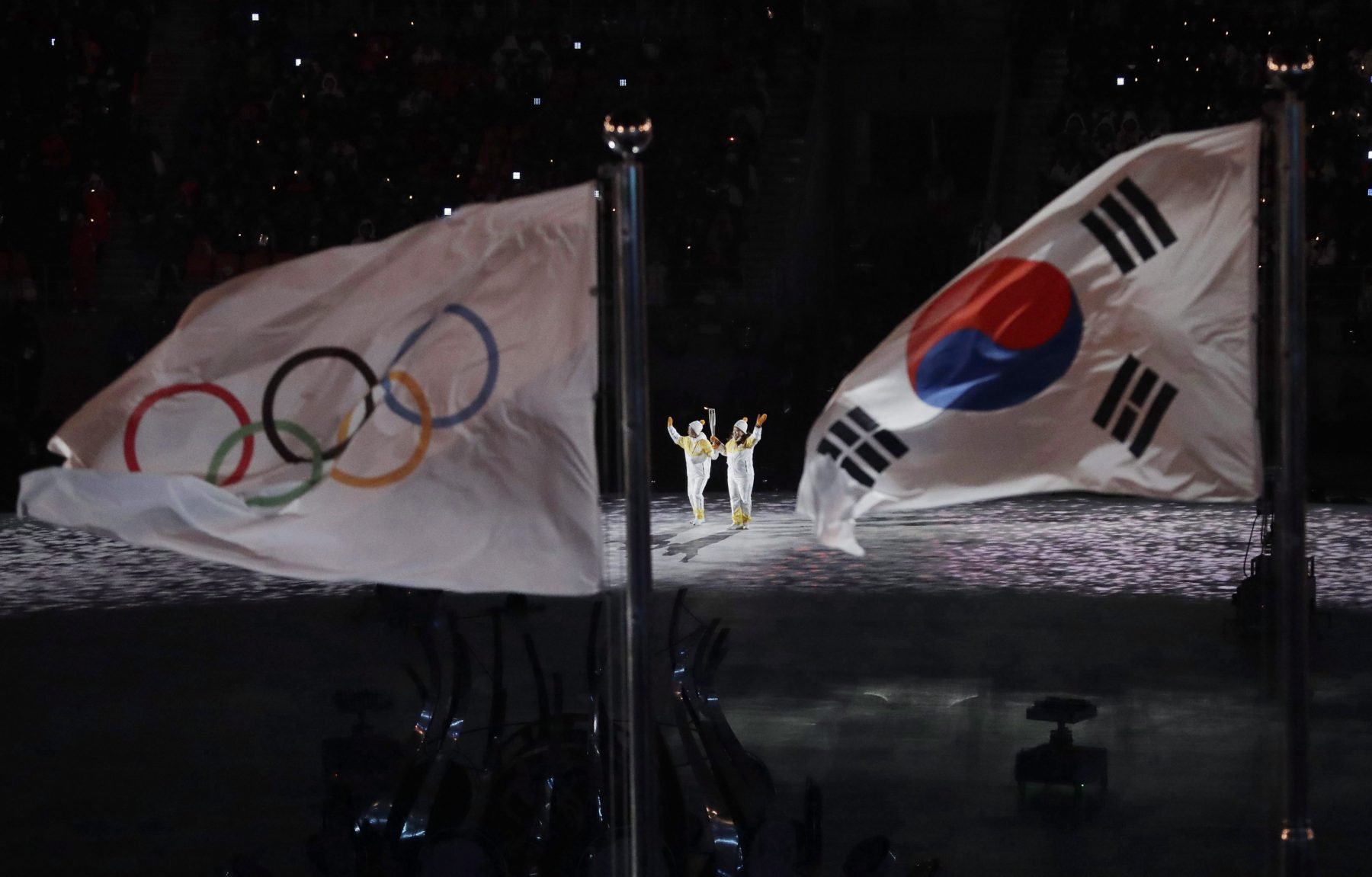
The Olympic torch is carried into the stadium during the opening ceremony of the 2018 Olympic Winter Games in PyeongChang, South Korea, Friday, Feb. 9, 2018. (AP Photo/Matthias Schrader)
PyeongChang earned the right to host the 2018 Olympic Winter Games on July 6, 2011, earning 63 votes to beat Munich (25) and Annecy (7) in the first round of voting. It was the third time that PyeongChang had bid for the Winter Games, previously finishing second to Vancouver for 2010 and Sochi for 2014.
In recent years the region has shown itself capable of hosting major winter sporting events. In addition to some competitions of the 1999 Asian Winter Games, future Olympic venues welcomed the world championships for curling, short track speed skating and biathlon. World Cup, Continental Cup and continental championships in alpine skiing, ski jumping and figure skating were also successfully hosted.

Kaillie Humphries and Phylicia George compete in the women’s bobsleigh at the 2018 Winter Olympic Games in Pyeongchang in South Korea. February 20, 2018 (Photo by Vincent Ethier/COC)
The Republic of Korea occupies the southern half of the Korean Peninsula, sharing a border with the Democratic People’s Republic of Korea to the north. With a population just under 50 million, South Korea is the 25th most populous country in the world. Nearly 10 million of those people live in the capital city of Seoul. Gangwon Province in which PyeongChang is located has a population of more than 1.5 million.
The official language of the country is Korean, although English is widely taught in school. South Korea runs on Korea Standard Time, which is 14 hours ahead of Eastern Standard Time.
Venues
The venues for the ice sports were clustered in the Gangneung Olympic Park. The Gangneung Curling Centre was the only pre-existing venue, having previously hosted many international events, including the 2005 ISU Four Continents Figure Skating Championships, the 2008 ISU World Short Track Speed Skating Championships and the 2009 WCF Women’s World Curling Championships.
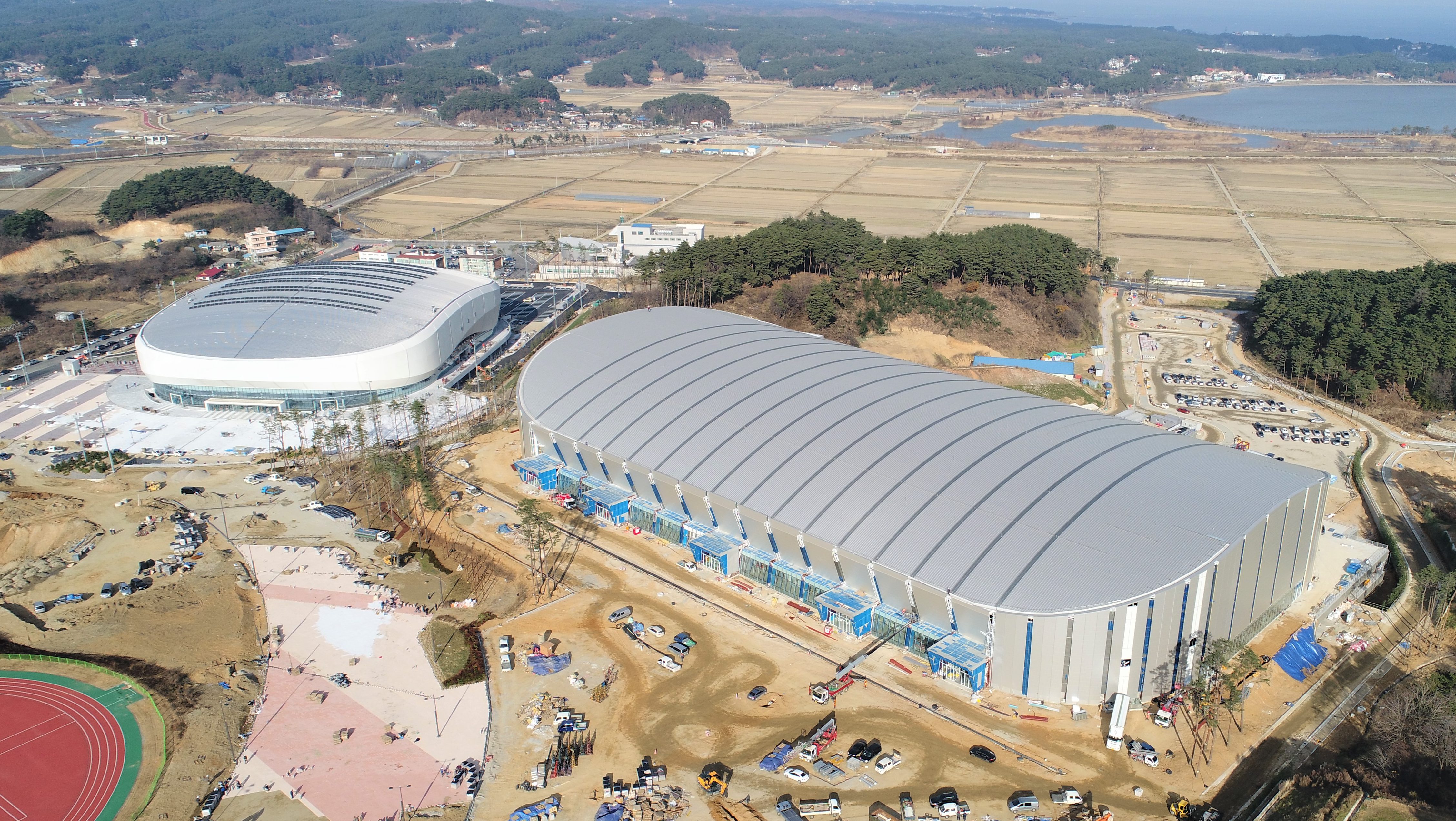
Gangneung Ice Arena and Gangneung Oval in the Gangneung Olympic Park (POCOG photo)
Two new ice hockey venues, the Gangneung Hockey Centre and the Kwandong Hockey Centre, were newly constructed, along with the Gangneung Oval for long track speed skating and the Gangneung Ice Arena for both figure skating and short track speed skating.
Most of the snow and sliding sports were clustered in the Alpensia Olympic Park. The Nordic events (cross-country skiing, ski jumping, Nordic combined, biathlon) as well as the sliding sports (bobsleigh, skeleton, luge) took place at the Alpensia Resort. The Olympic Sliding Centre was new, but the resort had already hosted several international competitions in the other sports, including the 2009 IBU Biathlon World Championships at the Alpensia Biathlon Centre and Continental Cup ski jumping meets at the Alpensia Jumping Centre. The Alpensia Cross-Country Skiing Centre is also a pre-existing venue.
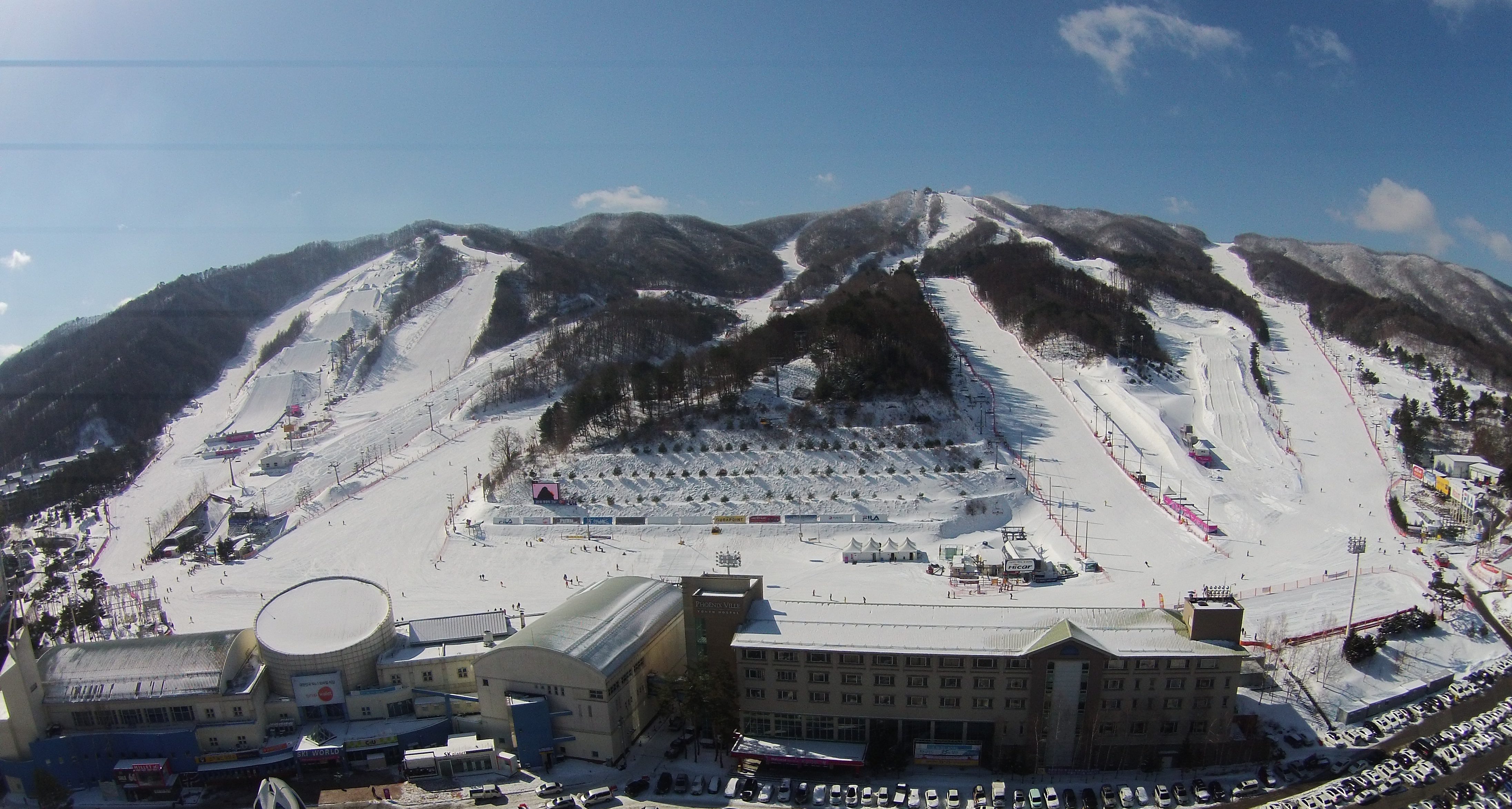
Phoenix Snow Park (POCOG photo)
The technical events of alpine skiing (slalom, giant slalom) were held at the existing Yongpyong Alpine Centre, which has previously hosted FIS World Cup events. The Mountain Cluster also included the PyeongChang Olympic Stadium for the Opening and Closing Ceremonies as well as the Medal Plaza.
Just outside the Alpensia Olympic Park, the alpine skiing speed events (downhill, super-G) were held at the newly constructed Jeongseon Alpine Centre while the freestyle skiing and snowboard events took place at the existing Phoenix Snow Park.

